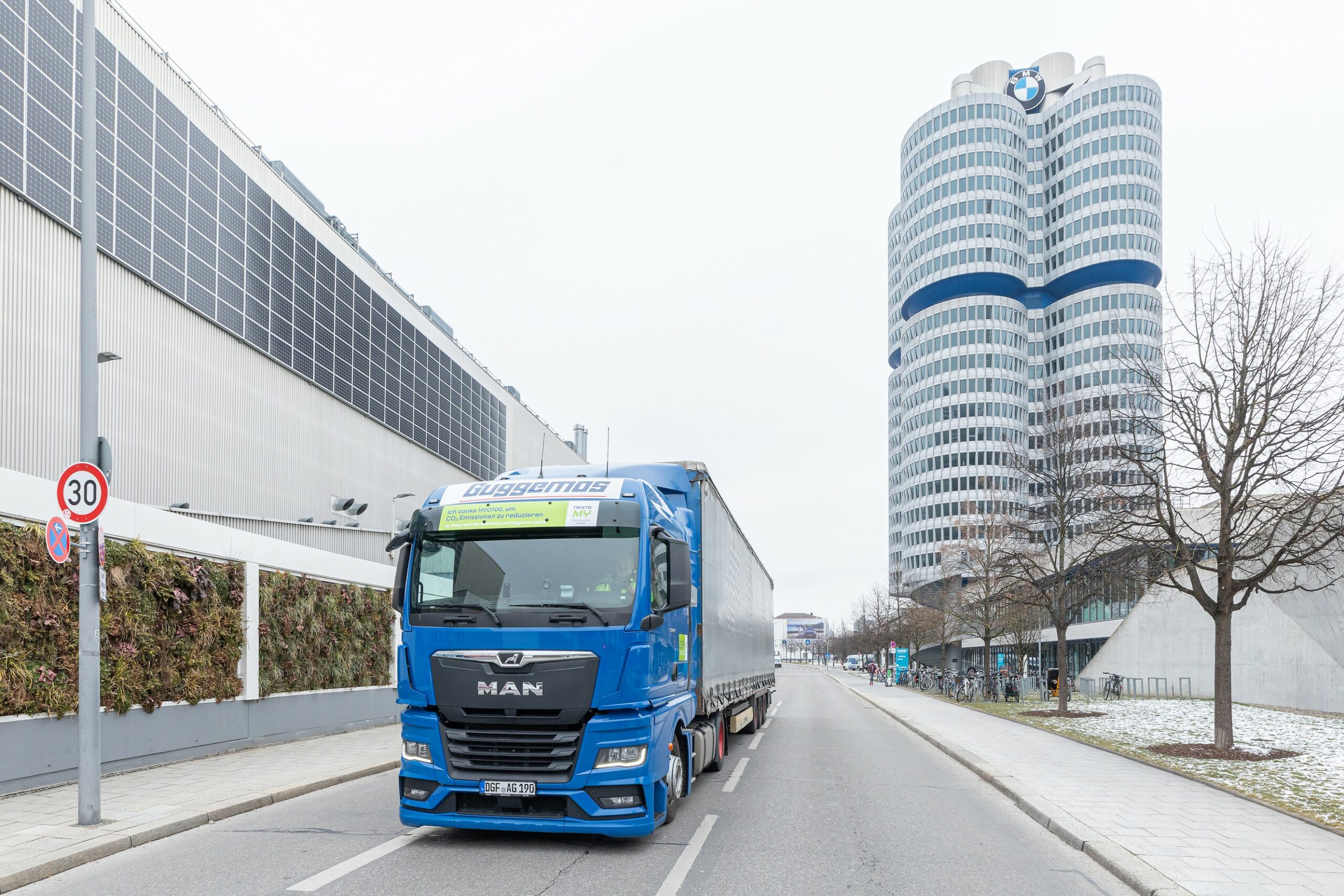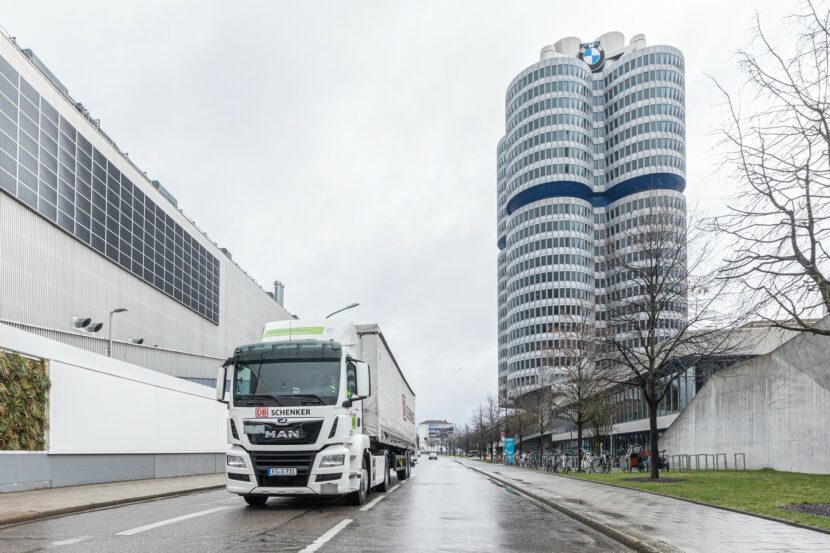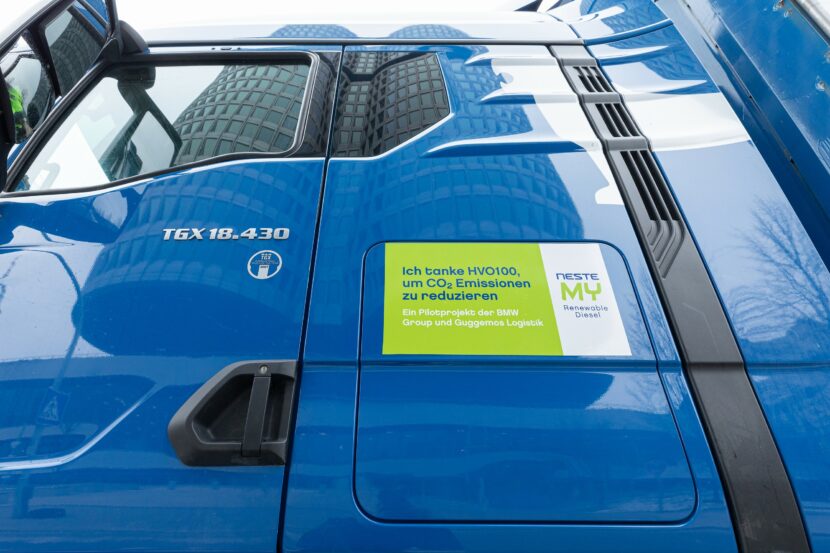Automakers are always looking for new ways to reduce their carbon footprint and BMW is showing even the much-criticized diesel can be a solution. Of course, it’s not the regular diesel you’ll find at a pump near you, but rather HVO100. The designation stands for hydrotreated vegetable oil made one hundred percent from this pure renewable fuel. You won’t be able to put that in our BMW as the green fuel is only used in logistics-related scenarios.
Specifically, the trucks operated by logistics provider Guggemos (GV Trucknet) from Landau an der Isar – the second-largest town in the Lower Bavarian district – to the Plant Munich run on HVO100. A fleet of 10 trucks uses this fuel made from waste products, residues, and renewable raw materials such as used cooking oil. Research has shown that well-to-wheel CO2 emissions are down by 90% compared to fossil diesel, even though fuel consumption is actually up by approximately 3%.
The fuel is made by Finnish oil refining company Neste and these 10 trucks are projected to generate 800 tons less CO2 annually than they would with conventional diesel. Each truck commutes about 40 kilometers (nearly 25 miles) between the BMW Group Supply Centre in Eching, located north of Munich, to deliver warehouse parts to the plant in the city.
Aside from being produced purely from renewable raw materials, another major benefit of HVO100 is the trucks don’t have to be modified to run on this green fuel. In addition, it can be used in combination with regular diesel regardless of ratio and can be supplied through the existing fuel station infrastructure.
HVO100 shouldn’t be confused with bio diesel as the latter is chemically different. The hydrotreated vegetable oil developed by Neste uses plant oils converted to hydrocarbons through a catalytic reaction with hydrogen. BMW mentions these 10 trucks join an existing fleet of purely electric trucks used at the Munich Plant, while the floor conveyors at the Hydrogen Competence Centre in Leipzig run on hydrogen.
Source: BMW







































































